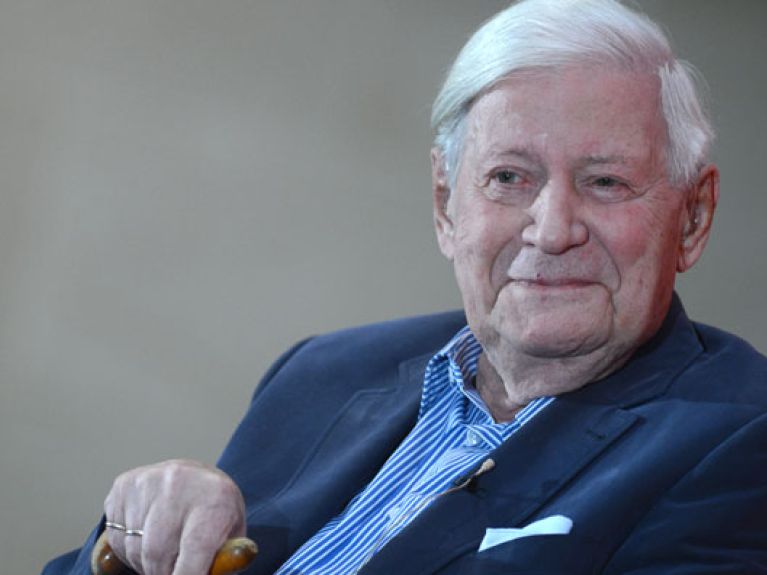Tributes to Helmut Schmidt
Germany is mourning the death of its former chancellor, a European trailblazer and a global spirit.

Hamburg (dpa) - Politicians in Germany and abroad have been paying tribute to the country's former chancellor Helmut Schmidt, who died Tuesday at the age of 96. According to reports, Schmidt had never fully recovered from vascular surgery in September to remove a thrombosis and had spent several days in failing condition in hospital. According to German media, he spent his final hours unresponsive and suffering from high fever.
Although his time in power ended in 1982, Schmidt never fully left the political scene, working as a publisher and an elder statesman, rarely without his trademark cigarette in hand.
Schmidt was a "political institution of the federal republic", said Chancellor Angela Merkel, adding the country owed him a great deal. "I stand with deep respect in front of Helmut Schmidt's accomplishments," Merkel said, adding that Germans appreciated his unfussy language and natural authority.
"We developed a deep affection for our former chancellor out of esteem and respect over the decades," the chancellor said. "His personal humility impressed us just as much as his sense of duty."
Germany has "lost a father figure", German Foreign Minister Frank Walter Steinmeier said. "We mourn a German democrat, a European trailblazer and a global spirit."
Russian President Vladimir Putin expressed his condolences in a telegram to Merkel and German President Joachim Gauck, describing Schmidt as an "outstanding figure of post-war Germany" who made an enormous personal contribution to the strong relationship between Russia and Germany.
"He was a man who, until his last breath, took a stance, above all else, in order to say to Germans which role they have to play," French President Francois Hollande said.
Schmidt succeeded Willy Brandt as chancellor, a post he held from 1974 to 1982. Previously he had been leader of the SPD group in the grand coalition government of 1967-1969, before serving as foreign and, later, finance minister.
As chancellor, the politics and economics graduate had to deal with the oil crisis, but also presided over Germany's economic boom. Politically, he had to deal with the terrorist attacks of the Red Army Faction and the domestically unpopular NATO double-track decision on Warsaw Pact nuclear weapons.
In the autumn of 1982, his coalition with the Free Democrats fell apart over differences in economic and social welfare policies.
In 1983, he became co-publisher of the weekly Die Zeit newspaper. He went on to write many books and go on lecture tours. Even in his later years, his opinion was sought and valued.

